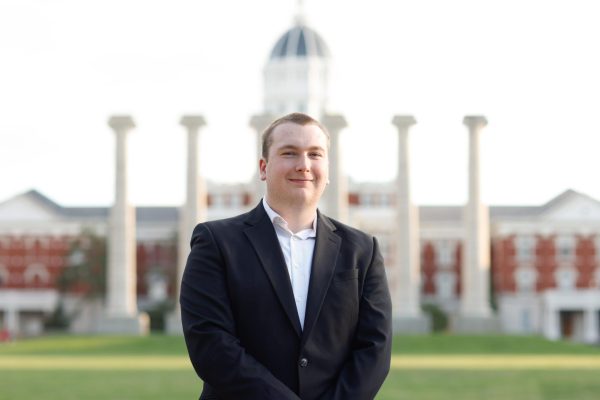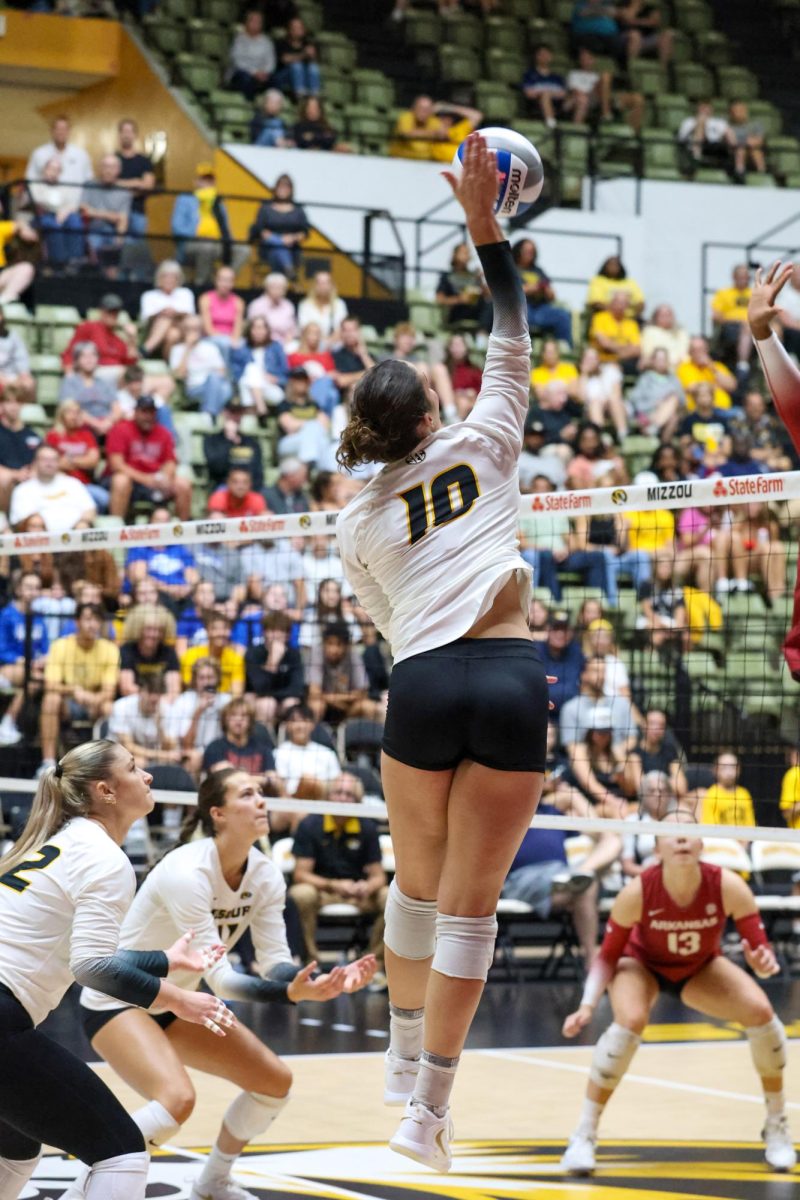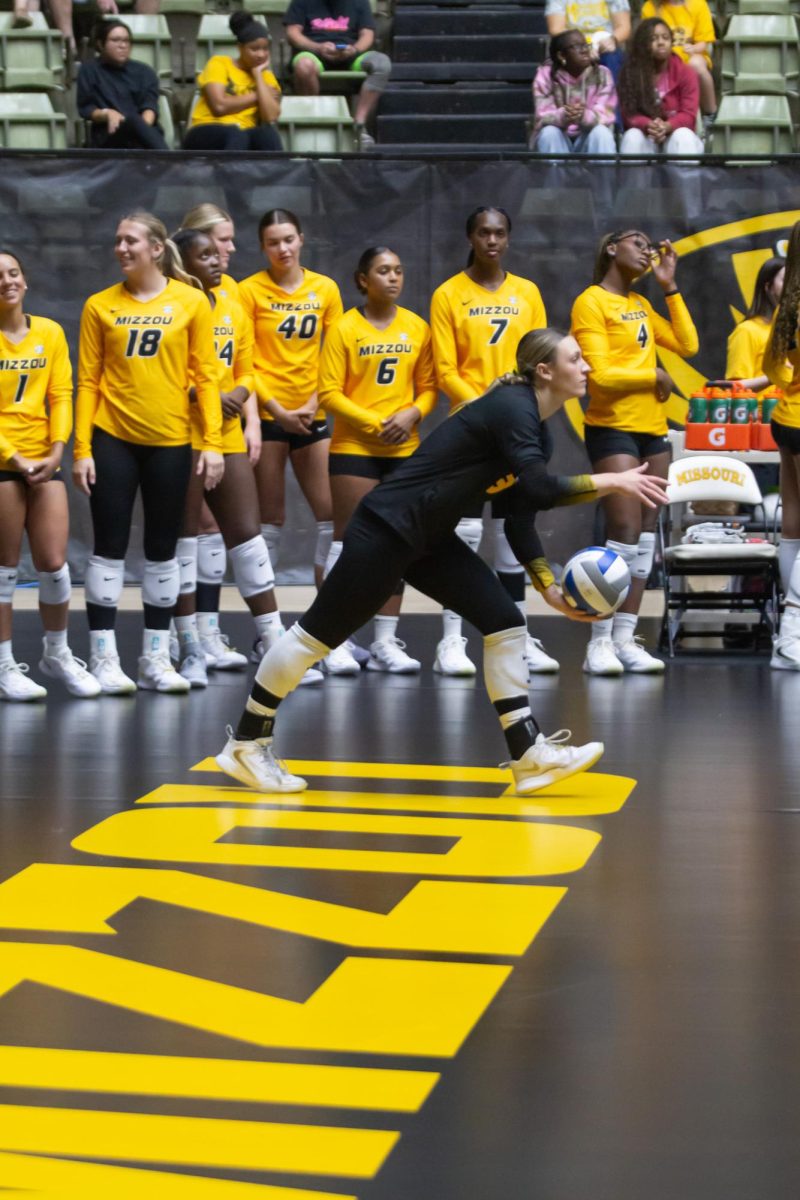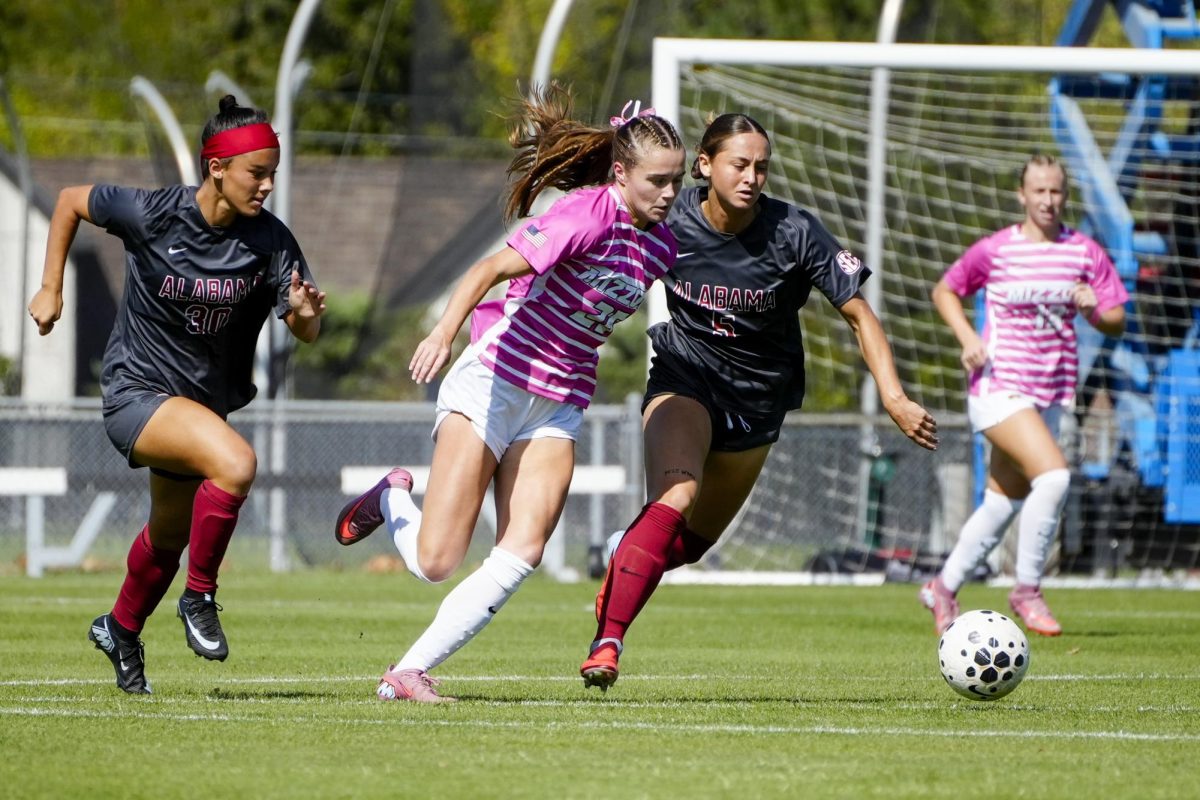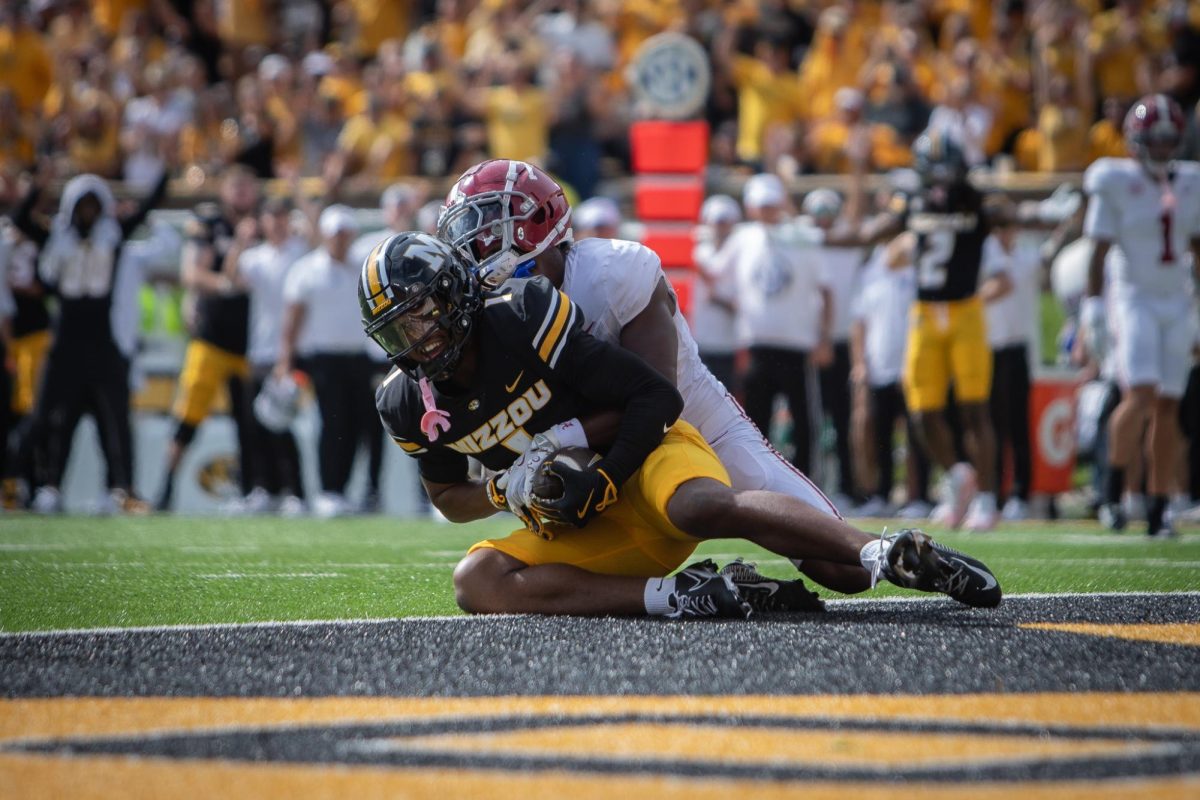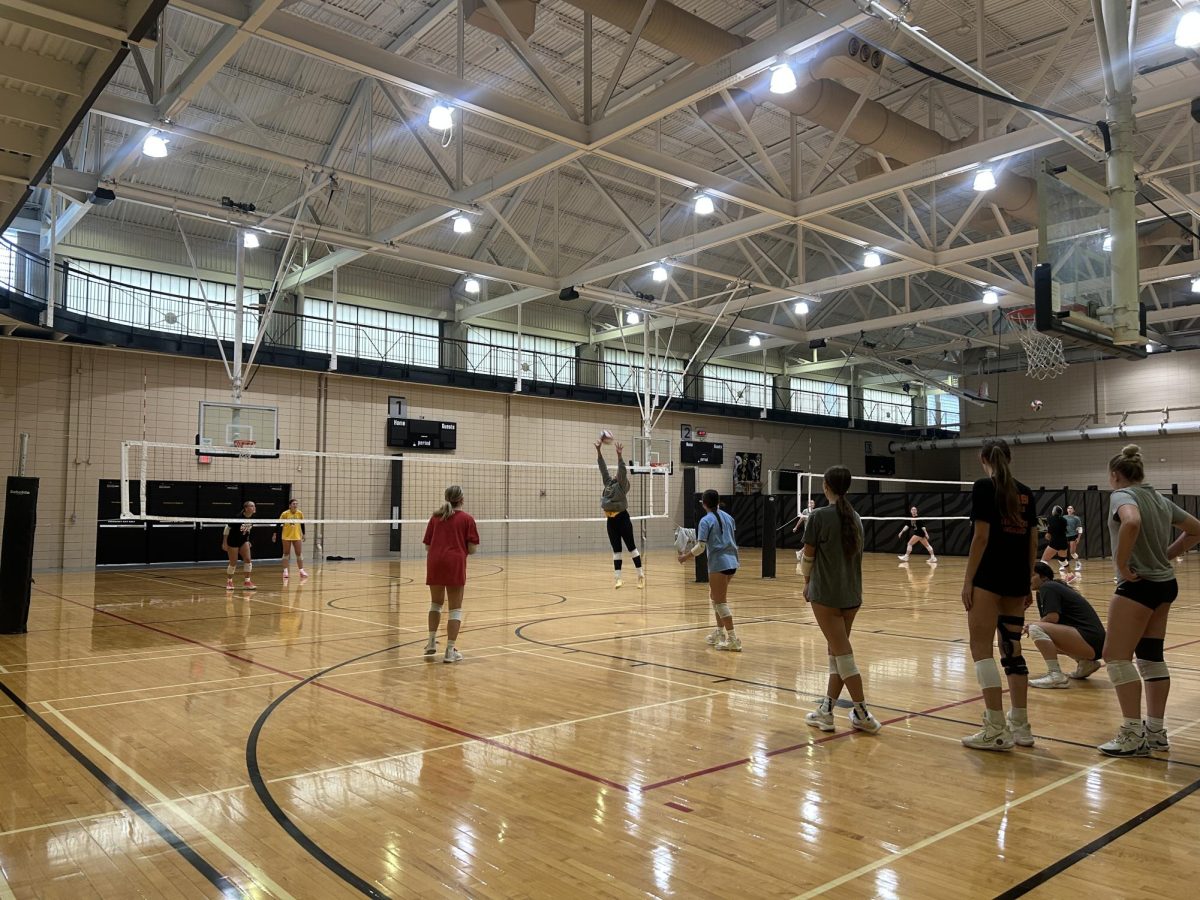Just because an athlete stops playing their sport, doesn’t mean they cease to be themselves.
It is the dream of every high school athlete to play their sport at the collegiate level. It takes a high level of commitment, hard work and a little bit of luck to reach that next step.
While collegiate athletes have four years of eligibility, not everyone uses them. Several players have quit their respective teams for a variety of reasons. This is equally true for athletes at the University of Missouri, as several members have decided to end their collegiate careers early.
The first former athlete The Maneater spoke with is a senior and three-year track and field athlete David Buckner. After originally playing football, Buckner’s mother made him switch to soccer due to safety concerns. However, his favorite part of soccer as a kid had nothing to do with the game itself.
“Instead of kicking the ball, I was just running back and forth,” Buckner said. “I was the fastest one out there.”
Buckner went on to run competitively for most of his childhood, competing in a variety of American Athletic Union track and field tournaments over the years. One trip included the 2016 AAU Junior Olympics in Humble, Texas, where Buckner won the gold medal in the All Sports Combine event. His favorite event to run was the 4×400 meter, as it is usually last at a meet and draws a large crowd.
“I loved when people would cheer you on,” Bucker said.
Buckner, a St. Louis native, decided to attend the University of Missouri to stay close to home. He was on the Missouri track and field team for three years, competing in a variety of events: the 60-meter dash, the 4×400 meters, the 600-meter dash, the 200-meter dash and the 400-meter hurdles. Buckner was quite gifted in the 400-meter hurdles, with a career-best time of 53.78 seconds at the John McDowell Invitational in April 2023. He finished seventh in the event and second for the Tigers.
Despite all the competitions he attended across the country, Buckner’s favorite part of the experience was getting to practice with his teammates.
“It was just us being together, training with each other,” Buckner said. “It was just the little things, really.”
However, Buckner has moved on, foregoing his final year of eligibility to pursue a career of professional wrestling. He attended the Flatbacks Wrestling School in Florida, which is owned and operated by former WWE performers Ronnie Arneill (aka Shawn Spears and Tye Dillinger) and Matthew Clement (aka Tyler Breeze).
“I always wanted to be in that field since I was a kid,” Buckner said. “I feel like I did what I needed to do in track, so now, I can finally pursue pro-wrestling.”
Buckner loves pro-wrestling in part because he can be anyone he wants. The industry is unique in that it allows the performers to build their own characters, even if it is nothing like how they normally act on a day-to-day basis. Buckner doesn’t have to portray himself as just one thing, instead using a degree of creativity to flesh out a new persona.
“I feel like David Buckner is not who I want to be when I’m that character,” Buckner said. “He’s really calm and introverted, versus the character I want to be is just a bigger than life character.”
In addition to pro wrestling, Buckner is majoring in graphic design and currently interning with the MU Athletics. He helps create templates and designs for use on a variety of athletics pages all across social media.
Unfortunately, not every post-athletics story has run as happily as Buckner’s.
Former Missouri athlete, sophomore Ella Leigh is a Columbia native who graduated from nearby Hickman High School in 2022. She began her athletic journey similar to Buckner, playing soccer for most of her youth. She played into her high school years, even being recruited to play out of state. However, a plethora of injuries derailed Leigh’s career and led to her to quit soccer in 2021.
“I had a bunch of surgeries, I had a bunch of broken bones,” Leigh said. “My body was like, ‘You should not play soccer anymore.’ So, I tried to find a less extreme sport that would be a little bit kinder to my body.”
Originally, Leigh wanted nothing to do with the University of Missouri.
“I was like, ‘If I can leave Columbia, Missouri, I’m gonna leave,’” Leigh said. “A lot of Columbia kids think [MU] is the lesser choice because it’s always been around.”
After quitting soccer, however, Leigh made the choice to stay close to home. After running cross country and track in her senior year of high school, she submitted her times to Missouri’s cross country recruiting coach, Stephen Smith. Leigh was given a spot on the roster in June 2022, with the start of the season quickly approaching.
“I loved it in ways I never thought I would,” Leigh said when describing her first moments on the cross country and track team.
However, not everything was perfect, as the summer before her freshman year came with a rigorous training routine.
“They make you run so much,” Leigh said. “It was the most tired I had ever been in my entire life.”
Leigh’s academic and athletic workload only continued to grow with the start of school.
“How am I supposed to be awake in class with 6 a.m. practices?” Leigh said. “This is a lot all on top of each other.”
The stress continued to build in Leigh’s life, as she suffered a stress fracture in her femur early in the season. As a result, she had to worry about not just school, but also getting healthy and staying in good shape to return to competition.
“I was mentally not here for it,” Leigh said. “It was just really, really hard, and it didn’t live up to the expectations that I wanted it to be.”
Leigh also said she felt a lack of support from the coaching staff and didn’t feel like she had much control over her journey.
“[Running] really destroyed my body,” Leigh said. “I wasn’t really helped and educated with how to run. They just told me what to do and I did it.”
Leigh was pushed to the brink, dealing with an array of new injuries throughout her first year. After returning to the track following a hip injury in March, Leigh noticed that there was something wrong with her foot. But due to her previous injury issues, she didn’t feel like she’d be able to tell her coaches.
“In May, we find out that I have a broken foot and I’ve been running on it for two months,” Leigh said. “In that instance, I felt my coach did not care because they weren’t advocating for my health. They were just wanting me to run just purely to run. Not because I was even doing well, they just wanted to see me on the track.”
Leigh felt a major disconnect from the coaching staff, as she said there was no concerted effort made by the coaches to connect with her at any level beyond practice.
“I never felt close to the coaches in a way that I felt that I would be sad if they left,” Leigh said. “Which I feel is kind of like a red flag.”
Since moving on from the team, Leigh has been enjoying her freedom to pursue other interests and passions. She currently works two jobs as a pharmacy technician at Big Tree Medical and at Fleet Feet, a local runners shop.
“I get to decide what I get to do today, and no one’s deciding for me – this sense of control I have not felt in a long time,” Leight said.
Leigh has also gotten to explore her passion in music. She currently plays three instruments, the guitar, the piano and the cello.
“It’s a way to express what I’m feeling without having to tell anybody,” Leigh said. “I’ve gone through a lot of mental health issues, and being able to use music as an outlet for that has been so rewarding.”
Leigh is currently a double major in public health and Spanish. She hopes to either go to a Spanish-speaking country to educate women and children on health care or teach English to children here in the United States.
“It’s been so cool to learn about how people communicate in different cultures, and I want to communicate with people that aren’t necessarily like me,” Leigh said.
While no two journeys are the same, individuals will still have goals and aspirations they hope to achieve. When athletes stop playing their sport, they continue to make an impact and show that they are more than just who they are on the field.
Edited by Quentin Corpuel | [email protected]
Copy edited by Bella Zielinski and Sterling Sewell | [email protected]


